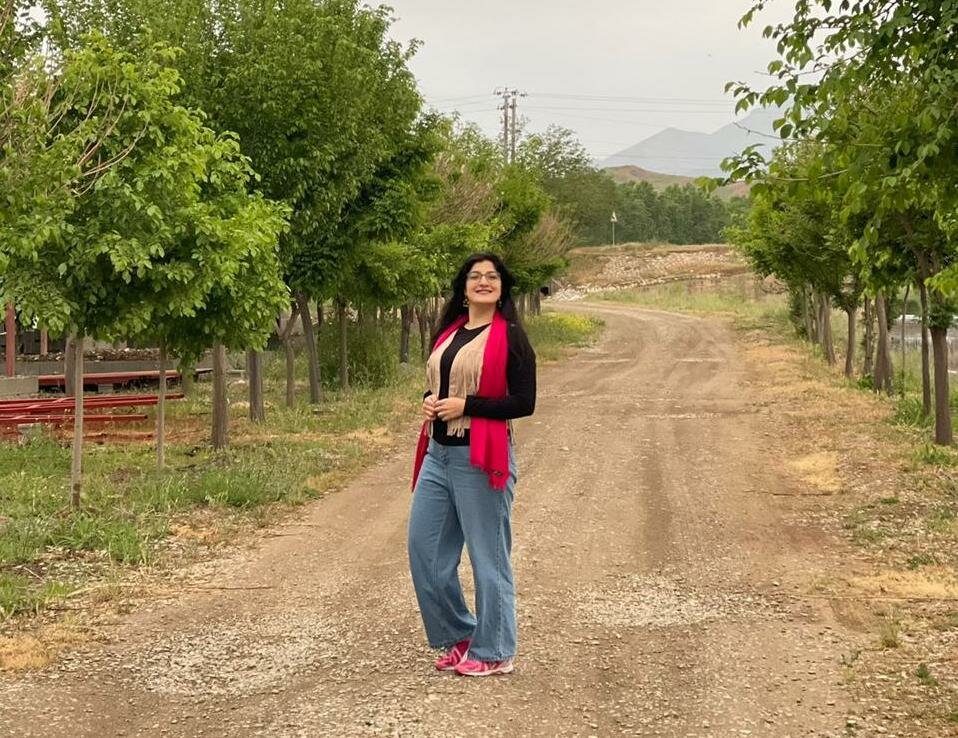Ishraq
“I was so frustrated and upset from the state of peace around the world, I had no faith or trust in peacemaking… And here I am, studying Interreligious Cooperation for Peace, and willing to go further in this field. I was so happy and satisfied in the end of the course,” says Ishraq.
Ishraq is a teacher and Palestinian refugee living in Sulaymaniyah. Her experience with the Peace Leader programme have made her more confident in talking about conflict and peace, and she now has a “stronger faith that there is hope.”

“It’s a fact that knowledge is one of the transformational tools. With knowledge, our spirits become higher. It’s a type of food, we get nourished by it,” says Ishraq, a teacher and Palestinian refugee living in Sulaymaniyah.
Interested in developing her teaching and communication with her students, she enrolled in the Learning Facilitator programme and, soon after, the Peace Leader programme – although at first she wasn’t convinced about the latter:
“I was so frustrated and upset from the state of peace around the world, I had no faith or trust in peacemaking… When I enrolled [in the] Peace Leader course, I said it clearly… either I learn a real practical skills about peacemaking or I’ll never study something in this field again or believe that there are studies about peace....And here I am, studying Interreligious Cooperation for Peace, and willing to go further in this field. I was so happy and satisfied in the end of the course.”
In the end, the Peace Leader programme turned out to be “more than a course,” and that “its value is much further than getting a certificate.” It was practical – applicable in daily life, including “for a bigger process for peace in the world” – and she also enjoyed the exchanges that took place both online and offline.
Inspired, she joined the Interreligious Cooperation for Peace programme in April 2024:
“I’m so satisfied and convinced by the presentation method and materials, I enjoy learning, even the topics are not easy for me specially when I connect it with the reality and the situation in the world, but there’s a real knowledge that I’m aware that I do gain it and it promotes in transforming myself.”
These two programmes have made Ishraq feel more self-aware, confident in talking about conflict and peace, and resulted in her “having stronger faith that there’s hope.”
Beyond teaching, Ishraq is also a case manager in one of Northern Iraq’s displaced persons’ camps, offers literacy classes for women, and engages in a range of other social work activities, with a strong sense of purpose:
“I do what is needed. What I feel is my responsibility I just do. Serving others is a pillar in my life, it’s something sacred. I just find myself involved in it without counting.”